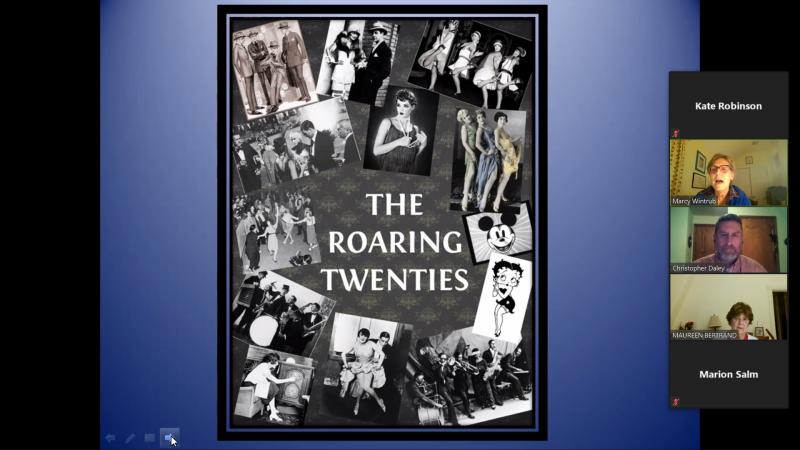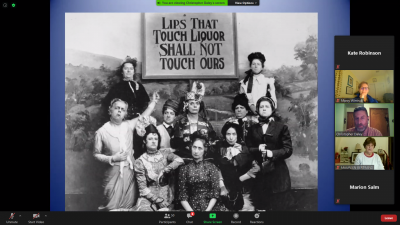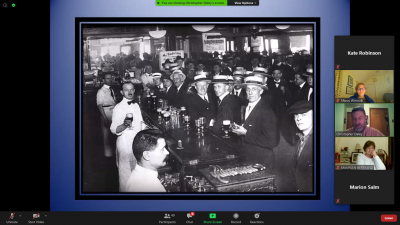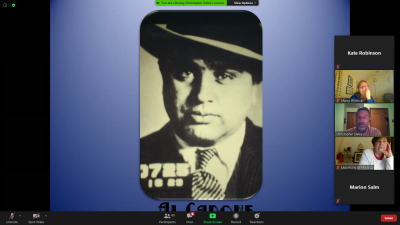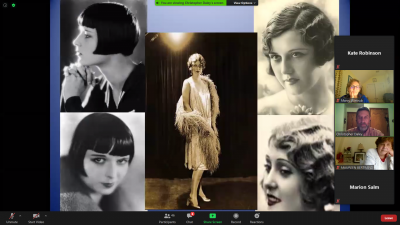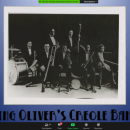Roaring Twenties: Jazz, gangsters, and more at virtual talk
You like jazz?
How about speakeasies, gangsters, silent films, and flapper dresses?
One of the most romanticized eras in American history — the “Roaring Twenties” — came into focus for dozens of Dartmouth residents at a virtual Friends of the Dartmouth Libraries presentation on Dec. 14.
Around 50 participants learned about the “Jazz Age” from Wareham historian, teacher, and former president of the Pembroke Historical Society Christopher Daley, who has lectured on the subject around New England for decades.
“This is my favorite time period,” Daley said at the start of the talk. “It was such a time of change, such a time of innovation, and social liberation.”
Starting with the post-WWI labor strikes and first red scare, the discussion delved into everything from Prohibition, speakeasy culture, and mafia violence to pole sitting, raccoon coats, jazz, and silent films.
Daley covered the decade’s most well-known heroes and villains: Al Capone, Charlie Chaplin, Bugs Moran, Clara Bow, Louis Armstrong, Lucky Luciano, and Jelly Roll Morton, among other notables.
The real feather in the fascinator was a discussion of Prohibition — “Prohibitionists believed [banning alcohol] would cure all of society’s ills,” he said, “But it made the average american a criminal” — and how its speakeasies and rum runners led to the rise of the mafia and mobsters.
“There was also a dark side to the 20s,” noted Daley. “There was a lot of racism going on, xenophobia. It was also a time of national isolation.”
He touched on the rebirth of the Ku Klux Klan and rampant racism, the mafia’s St. Valentine’s Day Massacre, and the Sacco-Vanzetti trial, in which two Italian immigrant anarchists were put to death after what appeared to be a shoddy trial in Massachusetts.
Culture of the time revolved around dance clubs, jazz, the start of Hollywood’s Golden Age, and flapper fashion like high hemlines and bob haircuts — and fads from pole sitting to the Charleston, and even goldfish swallowing.
“You think kids are crazy now, 1920s they were just as bad,” Daley laughed.
After the talk, Friends of the Dartmouth Libraries President Marcy Wintrub commented on the extent of the presentation.
“I wish it were more interactive from a functional point of view, but it was fascinating,” she said. “He has such a comprehensive understanding of everything that was going on at that time.”
Wintrub noted that she was happy to have so many participants joining.
“Normally our goal is to bring people into the library,” she said. “Ironically, we can’t do that now. So we want to maintain that sense of community and keep people entertained and engaged until we can get back to normal.”
“The good news is we’ve expanded our audience and we’ve expanded our thinking,” she added.



